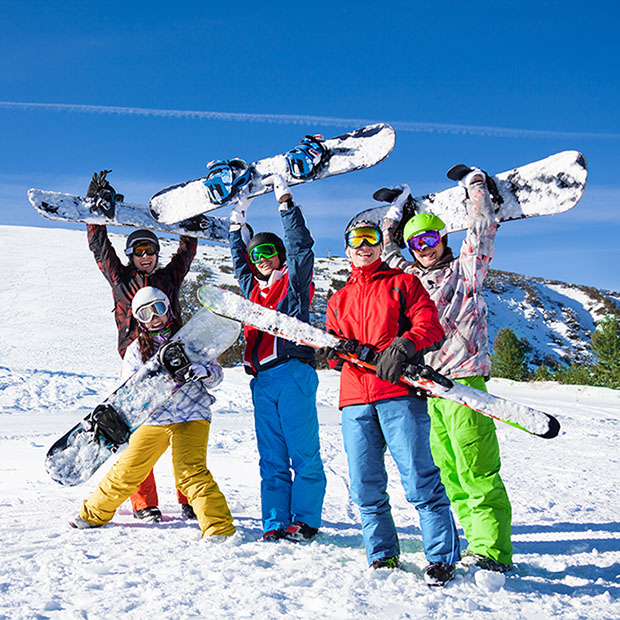Protect Your Eyes With Winter Eye Gear

Just because winter days are shorter, that doesn’t mean we can slack on eye protection!
The sun’s UV rays can be just as harmful on a snowy slope as they are on a sunny beach — sometimes even more so. Despite being bundled up in layers of winter gear, our eyes remain particularly vulnerable to these harmful rays. Let’s explore some winter eye safety tips and how to shield our eyes from potential damage.
Combating Dry Eyes in Winter
The cold winter months often bring with them drier air, which can exacerbate eye dryness, especially when indoor heaters further deplete the air’s moisture. If you’re prone to dry eyes, this can mean an intensification of that gritty, uncomfortable feeling. To alleviate dry eye symptoms, consider using a humidifier in your home and opting for seat warmers rather than high heat settings in your car to keep the air around you less dry.
Understanding Snow Blindness
In winter, unprotected exposure to sunlight can lead to snow blindness, a specific form of photokeratitis that occurs when UV rays are reflected off snow. Similar conditions affect welders and indoor tanners who neglect proper eye protection. Snow blindness is particularly risky for snowboarders and skiers due to the intense reflection of sunlight off the snow, which can multiply the harmful effects on the eyes.
Symptoms of snow blindness include pain and burning in the eyes, a sensation of grittiness, swollen eyelids, sensitivity to light, watery eyes, blurred vision, headaches, and an exaggerated glare from light sources indoors. The insidious aspect of snow blindness is that symptoms might not appear immediately, leading individuals to continue exposing their eyes to damaging UV rays without realizing the harm being done.
The Benefits of Snow Goggles
For those planning to spend time skiing or snowboarding, investing in a quality pair of snow goggles is crucial for eye safety. Snow goggles offer superior protection compared to regular sunglasses, fitting securely around the eyes and often being large enough to accommodate prescription glasses underneath. Many goggles come with anti-fog coatings to ensure clear visibility, enhancing both safety and performance on the slopes.
It’s important to choose the right lens color for your goggles as different tints can enhance visibility under specific conditions. While universal lenses can be effective in various settings, specific colors can improve contrast and visibility, depending on the weather and lighting.
Sunglasses: Essential in All Seasons
Outside of snowy, mountainous environments where goggles are necessary, wearing UV-blocking sunglasses during the winter remains critical. Polarized lenses are particularly effective as they reduce glare by blocking light that reflects off the snow, providing comfort and protection even in bright, snowy conditions.
Stay Safe and Enjoy the Season
We’re here to help you enjoy your favorite winter activities safely by ensuring your eyes are well-protected against the elements. Before you venture out into the winter wonderland, make sure your eye protection is up to the task. If you need recommendations for sunglasses or goggles, don’t hesitate to reach out to us.
